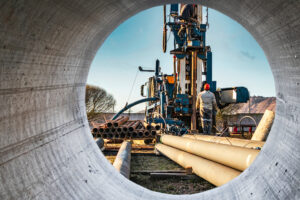“Constructing this project is an important step to ensure we meet the growing demand of our global customer base” states Mitch Eichelberger, general manager of normal alpha olefins and polyalphaolefins for Chevron Phillips Chemical.
The 1-hexene unit, to be built at Cedar Bayou facility in Baytown Texas, is scheduled to begin in construction in the first half of 2012. The 1-hexene technology is said to produce comonomer grade 1-hexene from ethylene with exceptional purity.
The 1-hexene is already successful at Qatar Chemical Company Ltd. In Mesaieed, Qatar. Polyethylene is a plastic resin commonly converted into pipe, milk jugs, detergent bottles, film, food and beverage containers. Olefins and aromatics are used in the production of solvents, detergents and adhesives.
The new 1-hexene plant will be capable of producing 551,000,000 million pounds per year.
The term 1-Hexene is an organic compound. It is an alkene that is classified in the industry as higher olefin and an alpha-olefin. Alpha-olefin is said to have a higher reactivity and this is why it has useful chemical properties.
A second plant using the 1-Hexene technology was scheduled to start in construction in Saudi Arabia in 2011.
Lummus Technology has developed a new on-purpose route where 1-butene reacts with itself to produce 1-hexene.
Petrochemical plant feedstock sources from raw natural gas are methane, etane, propane and butanes. Benzene, toluene and xylenes, are referred to as BTX, and are obtained by extraction from the reformate produced in catalytic reformers.
BTX and methane are used directly as feedstocks for producing pretrochemicals. Ethylene, butense, buadiene, benzen and propylene are produced by steam cracking operations by extraction.
“Approval of this 1-hexen project represents a significant milestone for our business and it supports our growth strategy as a leader in the production of normal alpha olefins, ” said Mitch Eichelberger.




